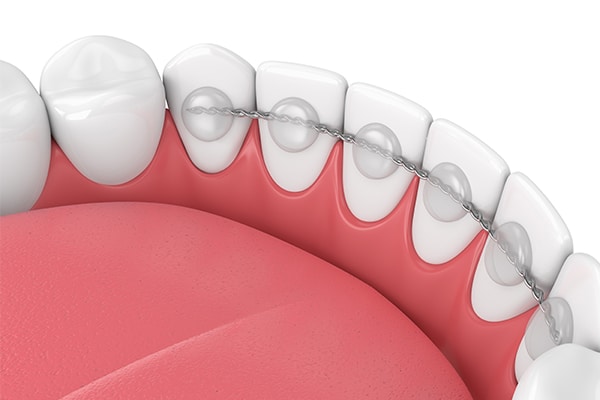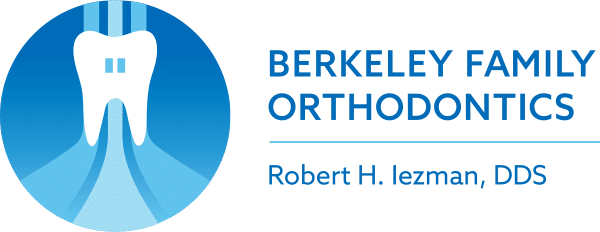The benefits of orthodontic treatment can last a lifetime if you wear your retainers as instructed. Keep these important responsibilities in mind:
Types of Orthodontic Retainers after Braces or Invisalign
Removable Retainers
After the active orthodontic appliances are removed, the patient will be given retainers to help stabilize the dental corrections. The bone and soft tissues around the teeth take several months to stabilize after the braces are removed, so it is crucial that the retainers are worn according to the instructions provided. If the retainers are not worn as directed, it may lead to undesirable movement of the teeth, which could require further treatment.
How to Wear Orthodontic Retainers
Teeth can continue to shift throughout life, whether or not someone has received orthodontic treatment. Therefore, we believe that individuals who have undergone orthodontic therapy should wear retainers indefinitely. Patients should wear retainers continuously for the duration recommended by Dr. Robert Iezman and his staff after their braces are removed.
- Transition to Night Wear: Based on Dr. Iezman’s guidance, you may transition to wearing retainers only at night or for reduced hours (16 or 8 hours per day) over time.
- Ongoing Check-Ups: Dr. Iezman will continue to see you for retainer check-ups until he’s confident that no further orthodontic treatment or monitoring is needed.
At that point, our patients should continue wearing their retainers as needed. They are instructed to call the office if anything seems unusual or if their retainers break. For most patients, if they stop wearing their retainers, there is a significant chance that their teeth will become misaligned.
How to Care for Orthodontic Retainers
Proper care keeps retainers in good shape and extends their lifespan.
- Avoid Excessive Heat: Keep retainers away from heaters, dishwashers, car dashboards, or any place where temperatures exceed 115°F, as heat can damage them.
- Use a Retainer Case: Always store retainers in their case when not in use.
- Keep Away from Pets: Family pets are often attracted to retainers and may chew on them.
- Daily Cleaning: Clean retainers with a toothbrush and mild soap to remove plaque before and after use. Avoid colored cleaning solutions for clear retainers.
- Routine Replacement: Retainers need periodic replacement. Your original treatment includes one set after braces, but additional replacements may be necessary over time. Contact our office for replacement if retainers are lost, damaged, or become loose.
Fixed Retainers (Bonded Wire)
Retainers must be worn indefinitely, and bonded wire retainers are no exception. The only exception to this rule is if your family dentist advises that you are not maintaining proper hygiene, which can lead to gum or bone issues. If that occurs, it’s important to have the wire retainer removed and replaced with a removable retainer, which should be worn as prescribed by Dr. Iezman.
Over time, fixed retainer wires can loosen due to wear, either from one or two teeth or completely. If this happens, please contact our office as soon as possible to have the wire repaired or replaced. Additionally, please have your family dentist monitor the condition of this wire during your six-month check-ups.

Habits or Conditions Requiring More Retainer Wear
Certain habits or conditions may require extra retainer wear to avoid potential complications:
- Mouth breathing
- Clenching or grinding (muscle hyperactivity)
- Tongue thrusting or low tongue posture
- Playing a reed instrument
- Thumb, finger, or lip sucking
- Biting on pens or pencils
- Pre-existing spacing between teeth
Our goal is to help your smile stay beautiful and healthy for a lifetime. Your commitment to wearing retainers as instructed will play a big role in achieving this.
Dental Examinations and Cleanings
Maintaining proper oral hygiene and attending regular dental visits are crucial for the long-term success of your orthodontic treatment. It is important to commit to daily brushing and flossing using thorough techniques. Additionally, you should see your family dentist for cleanings and check-ups at least every six months. These practices will help keep your teeth and gums healthy, which will enhance the results of your orthodontic care and allow you to enjoy a lifetime of smiles.






